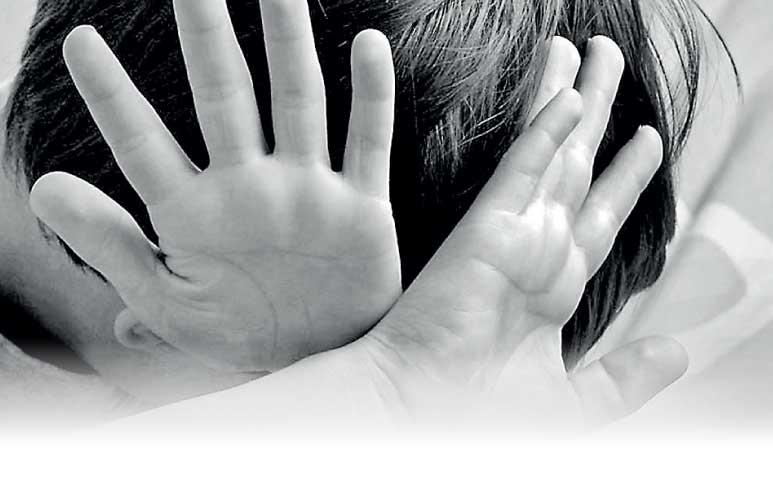Reply To:
Name - Reply Comment

Key findings from the NCPA statistical reports (2014-2024) reveal cruelty to children the most reported type of abuse
iProbono Sri Lanka, in collaboration with Stop Child Cruelty Trust, is set to release an in-depth retrospective report evaluating the performance of the National Child Protection Authority (NCPA) over the last decade
As Sri Lanka celebrates Children’s Day on October 1, this year’s event takes on added significance with the country’s newly elected President and Prime Minister, the latter of whom also serves as the Cabinet Minister for Women and Children’s Affairs.
They are expected to celebrate the first significant event in their new roles, focusing on the welfare of 25% of the population, our children. With the alarming escalation of incidents of child abuse, the call to elevate child protection to the centre of State governance is becoming louder and persistent from civil society activists and advocates.
iProbono Sri Lanka, in collaboration with Stop Child Cruelty Trust, is set to release an in-depth retrospective report evaluating the performance of the National Child Protection Authority (NCPA) over the last decade. Authored by iProbono, the report examines the NCPA’s effectiveness in addressing child abuse, its compliance with the National Child Protection Authority Act No. 50 of 1988, and its commitment to fostering transparency, accountability, and child protection.
Troubling trends
Key findings from the NCPA statistical reports (2014-2024) reveal troubling trends, including that cruelty to children under Section 308A of the Penal Code remains the most reported type of abuse, with a staggering 23,884 complaints over the ten-year period, averaging 1,990 complaints per year. Alarmingly, as of the end of 2020, over 40,000 complaints received between 2011 and 2020 remained unresolved, and this backlog persisted into 2021, with 47,136 complaints unresolved by the end of that year. Additionally, the report highlights a significant under-utilisation of financial resources by the NCPA over the past decade. Despite having substantial grants available, the NCPA has consistently failed to allocate or spend these funds effectively, leaving millions unspent. This financial mismanagement has delayed critical initiatives meant to safeguard vulnerable children. Furthermore, the report will critique the NCPA’s flawed data collection and reporting mechanisms, which obscure the true scale of child abuse in Sri Lanka and hinder data-driven policy interventions
“The NCPA plays a crucial role in protecting Sri Lanka’s children, and accurate and reliable data is essential for effective interventions,” said Shevindri Manuel, Program Manager, iProbono Sri Lanka. Adding also that “We hope that this report will spark a much-needed conversation about the need for reform and help to ensure that the NCPA has the tools it needs to protect children more effectively.”
The report will also make strategic recommendations aimed at improving the efficacy and functionality of the NCPA, ensuring it better fulfils its mandate to protect children across Sri Lanka. Right to Information
A focal point of the report is a landmark Right to Information (RTI) case initiated by Dr. Tush Wickramanayaka, founder and Chairperson of Stop Child Cruelty Trust, with legal support from iProbono. In May 2023, Dr. Wickramanayaka submitted a request to the NCPA, seeking access to child abuse convictions statistics from 2010 to 2021 and the NCPA’s annual reports for 2020 to 2022. When the NCPA failed to provide these documents, claiming they were not public records, Dr Wickramanayaka pursued legal action under the RTI Act.
The RTI Commission ruled in favor of Dr Wickramanayaka in 2023, recognising the NCPA’s obligation to provide transparency on child abuse cases and its operations. In a historic decision, the Commission recognized the crucial role of the National Child Protection Authority (NCPA) in ensuring child protection. The Commission ordered the NCPA to formulate a system that provides transparent data on all child abuse cases that are currently under court procedures. This directive is in accordance with the NCPA Act, Section 14 (h), which states that the NCPA is responsible for monitoring the progress of all investigations and criminal proceedings related to child abuse.
The NCPA has been given until 17 October 2024 to comply. The Commission also ordered the NCPA to ensure its website is accessible in Sinhala, Tamil, and English, and that relevant data and reports are made publicly available.
The full report, which provides a detailed analysis of the NCPA’s shortcomings and offers recommendations for reform, will be officially released on 20 November in commemoration of World Children’s Day.
(For more information, please contact:Geilee Skandakumar, iProbono’s Communications and
Advocacy Officer, Sri Lanka)
[email protected].